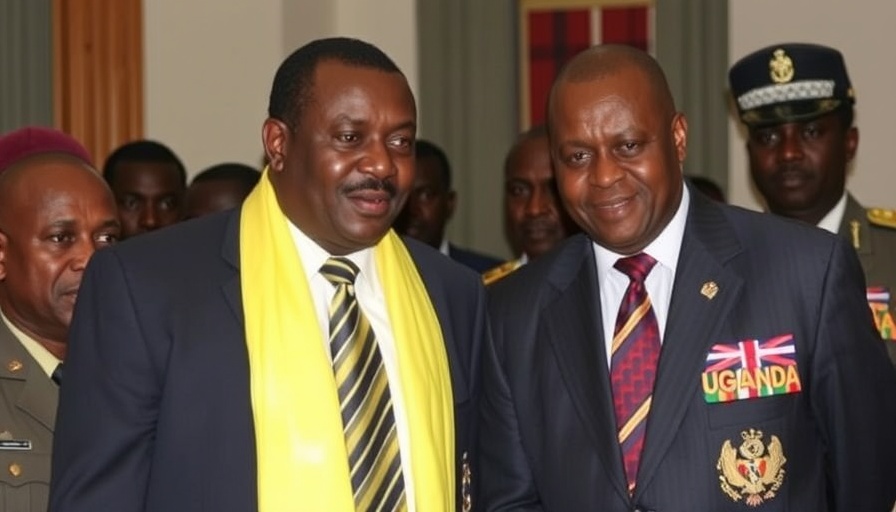
Heightened Tensions in the Great Lakes Region
As Uganda's military chief, General Muhoozi Kainerugaba, visits Rwanda amid escalating crises in the Democratic Republic of Congo (DRC), experts warn about the shifting dynamics of security and influence in the region. This trip signals not only a tactical military alliance but also a nuanced diplomatic maneuver as both nations contend with the escalating inclusivity and volatility of Eastern Congo.
Rwanda’s Allegations and Uganda's Position
Rwanda is currently facing serious accusations regarding its alleged support of the M23 rebel group, which has recently captured key towns in eastern Congo. In a strategic move, Uganda has been operating in the region to combat violent extremist factions such as the Allied Democratic Forces (ADF) and Codeco militias. This complex interplay of accusations remarks on Uganda's broader regional ambitions. Professor Phil Clark from SOAS University points out that Uganda appears to be capitalizing on the current security focus on Rwanda to solidify its own military presence and political significance in the DRC.
The Meaning Behind Muhoozi's Visit
General Kainerugaba's visit to Rwanda is couched in formal dialogue, but its underlying implications may be profound for the geopolitics of Central Africa. By designating it an “opportunity lecture” at the Rwanda Defence Forces command and staff college, the emphasis on military collaboration and cooperation emerges, hinting at a defenses pact to unite against perceived external threats. This declaration of mutual aggression should any nation provoke war raises questions about the future of territorial sovereignty and military strategy within the region.
Potential Economic Implications for Africa
Given the critical role that DRC plays in Africa's mining industry, the outcomes of these military and diplomatic efforts could have far-reaching economic implications. As tensions mount, foreign investments might either escalate or recede, depending on global perceptions of stability in the region. For business leaders, this war of nerves and the shifting alliances could directly affect trade routes and investment opportunities in Eastern Africa.
Looking Forward: Is Military Cooperation a Solution?
While the pledged military cooperation between Uganda and Rwanda could act as a deterrent against further conflict, it also sets precedents for military intervention in political crises. As the DRC faces increasing instability, the world will be watching closely to see if this partnership can yield a constructive response to pervasive conflict or if it merely perpetuates a cycle of mistrust and militarization.
As geopolitics evolves rapidly within Africa, staying informed about these pivotal developments shapes the understanding of how foreign relations and security concerns intersect with economic opportunities on the continent. To keep up with the dynamic changes that influence Africa’s position in global affairs, it's crucial to engage with emerging narratives surrounding these shifts.
 Add Row
Add Row  Add
Add 


Write A Comment